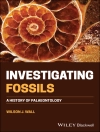Cetaceans (whales, dolphins, and porpoises) have fascinated and bewildered humans throughout history. Their mammalian affinities have been long recognized, but exactly which group of terrestrial mammals they descend from has, until recently, remained in the dark. Recent decades have produced a flurry of new fossil cetaceans, extending their fossil history to over 50 million years ago. Along with new insights from genetics and developmental studies, these discoveries have helped to clarify the place of cetaceans among mammals, and enriched our understanding of their unique adaptations for feeding, locomotion and sensory systems. Their continuously improving fossil record and successive transformation into highly specialized marine mammals have made cetaceans a textbook case of evolution – as iconic in its own way as the origin of birds from dinosaurs. This book aims to summarize our current understanding of cetacean evolution for the serious student and interested amateur using photographs, drawings, charts and illustrations.
Over de auteur
Felix G. Marx is Curator Vertebrates at the Museum of New Zealand Te Papa Tongarewa, where he primarily looks after the marine mammal collection. Prior to becoming a curator, he spent several years as a postdoctoral fellow in Australia, Belgium and Japan. He specialises in the evolution of baleen whales, but has worked on a broad variety of topics, from macroevolution to feeding ecology, biogeography, and behaviour.
Dr Olivier Lambert is a vertebrate palaeontologist at the Institut royal des Sciences naturelles de Belgique, Brussels. Interested in the secondary adaptations of mammals to the marine environment, Dr Lambert studies fossil cetaceans from many geological ages and localities in the world. Most of his publications focus on extinct echolocating toothed whales, especially from the North Atlantic and South-East Pacific realms.
Dr Mark D. Uhen is an Assistant Professor of Geology at George Mason University. Dr Uhen s research focuses on the origin and evolution of cetaceans (whales and dolphins), and other marine mammals. He has conducted field work around the world, developed exhibits and lessons on cetacean evolution for museums, and published on his work in journals, and books. Dr Uhen is also a leader of the Paleobiology Database, an on-line open resource that documents every fossil occurrence on the planet.












